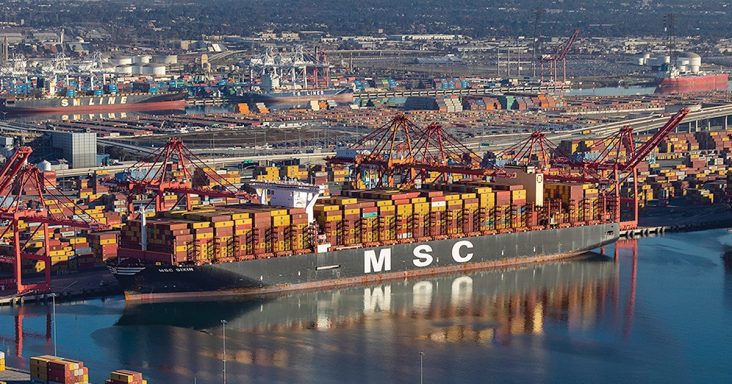Walmart boss warns of higher prices from ‘magnitude’ of tariffs
by May 16, 2025 7:22 am 692 views

Walmart CEO Doug McMillon is pleased that President Donald Trump backed away from his 145% tariff on goods from China, but the retailer is concerned the lower rate at 30% is more than retailers and manufacturers can fully absorb.
“We will do our best to keep our prices as low as possible but given the magnitude of the tariffs, even at the reduced levels announced this week, we aren’t able to absorb all the pressure given the reality of narrow retail margins,” McMillon said during a recorded call for analysts on Thursday as part of the company’s first-quarter earnings report.
Retailers have been given a short window with Trump’s 90-day pause on the 145% tariff to import shoes, clothes, toys and other items, but the tariff starts and stops are challenging for retail buyers and suppliers who typically depend on a reliable cost environment when ordering and stocking inventory.
Walmart said it has in recent years built in hedges against tariff threats, with some of the hedges helping hold prices down more than other competitors. McMillon said it’s also to Walmart’s advantage that it sells a diverse mix of goods from groceries and consumables to discretionary items like televisions and toys. It’s also helpful that so much of Walmart’s business is in consumables like food. Walmart can more easily work with suppliers to adjust supply while navigating through tariff impacts on costs.
McMillon said more than two-thirds of what Walmart sells is made, grown, or assembled in the U.S., and about 60% of Walmart’s suppliers are small businesses employing less than 400 workers.
He said the largest import markets for Walmart are China, Mexico, Vietnam, India and Canada. China represents a lot of volume in electronics and toys for Walmart. While the tariff on goods from China have the biggest impact to Walmart’s business, McMillon said all tariffs that started in late April and accelerated in May also create margin pressure.
The game plan Walmart unveiled Thursday indicates the retailer wants to keep food and consumables prices as low as possible, noting that those prices have risen in recent years and consumers have already been dealing with that inflationary pressure.
However, tariffs against Peru, Costa Rica and Colombia are pressuring prices on items like bananas, avocados, coffee and roses. He said in some cases, Walmart is holding prices down despite tighter margins.
“We will do our best to control what we can control to keep food prices as low as possible,” he said.
He said Walmart will continue to suppliers to make their products in the U.S., which he said is not an easy task.
“We also have suppliers shifting materials from tariff-impacted components like aluminum and fiberglass, where there is no tariff. Our merchants and sourcing teams continue to be creative to identify opportunities and adjust,” McMillon said.
Walmart Chief Financial Officer John David Rainey said the company is not immune to any short-term financial impact that could occur with uncertainty around trade policy.
Modeling the impact of tariffs in the short term, Rainey said Walmart should achieve its full-year guidance for sales revenue and operating income. At extreme levels of extended tariffs, Rainey said Walmart may not be able to grow net income faster than revenue, but he is confident Walmart will deliver on its 4% sales growth for the year.
